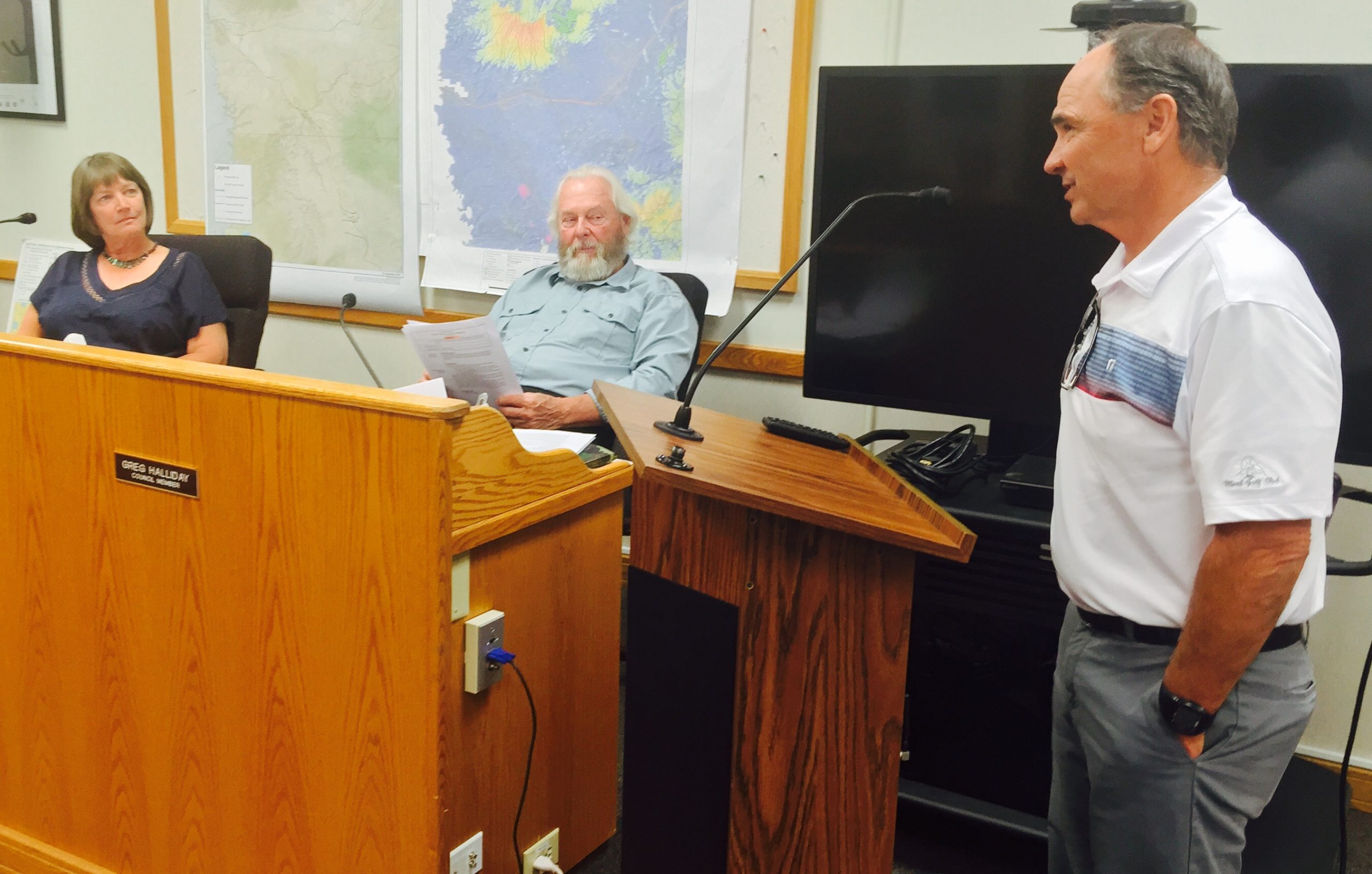Some information may be outdated.
The “compelling public interest” to inform hotel developers and others of potential changes to Grand County’s land-use code was ultimately not so compelling to a supermajority of county council members.
Three of the council’s five members who were present at its June 5 meeting voted in favor of a resolution to notify the public that officials are considering the possibility of requiring overnight lodging developers to build housing for their employees. But without a supermajority of at least four of the council’s seven members, council member Jaylyn Hawks’ motion to approve the resolution failed.
Council members Evan Clapper and Mary McGann joined Hawks in supporting the motion, while Greg Halliday and Curtis Wells opposed it. Rory Paxman and Patrick Trim were absent from the meeting.
If the resolution had taken effect, Hawks said it would have notified developers that they were free to submit applications for new hotels and other lodging in the county’s unincorporated areas. At the same time, she said, it would have let them know that the county’s requirements may change, depending on whether or not it adopts an “assured housing” policy.
“That’s all this does,” Hawks said. “We have 180 days by statute to get everything running and in place, so at the end of that 180 days, if we’ve done nothing and made no decisions, then those applications would be processed as they normally would…”
“Assured housing” refers to policies that require market-rate developments to provide affordable housing, either in the form of affordable units within the larger project, or through the payment of “in-lieu” fees to develop housing elsewhere.
The Moab City Council passed a similar resolution at its May 22 meeting, and Clapper said he believes that county officials should let hotel developers and others know that they’re thinking about following suit.
“In my mind, it’s more of a courtesy to say, ‘Hey, heads up: We’re looking at the land-use code,’” he said. “This resolution is not the land-use code, and there’s obviously still a lot of debate to go around with the land-use code.”
McGann agreed.
“It’s nice to have a heads-up,” she said.
But Wells raised concerns that the resolution held hotel developers responsible for the much-larger problem of affordable housing — or the lack thereof — in Grand County. New hotels continue to appear in Moab due to market demand, he said, which the county itself helps drive by promoting tourism.
“It’s not that a hotel pops up and all of a sudden the market grows,” Wells said. “The hotel is a symptom or a complement to the market, and so this (is) basically pointing a finger at hotels, and subsequently, it’s blaming them for the affordable housing problem.”
If a local hotel couldn’t find housing for its employees, he said, it wouldn’t open up or exist in Moab. In reality, he said, the hotel industry is taking responsibility for the issue internally by providing housing for its employees, or working to help facilitate housing.
“If you know the hoteliers in this community, they are doing that,” he said. “They are buying land; they are bringing in Airstreams; they are buying houses; they are building high-density units to house their employees, because they have to.”
The community’s affordable housing woes, Wells said, are a “symptom” of Moab’s tourism-driven economy.
“That’s been proven; that’s a fact,” he said. “I don’t agree to point the finger at hotels, and what you’re doing is putting an issue on the backs of hotels.”
Anasazi Realty Principal Broker and owner Randy Day urged council members not to adopt a policy that — in his words — would punish one segment of the county’s economy.
“Your only economy is that segment,” he said. “That is exactly where you get your bread and butter.”
Employee rosters at local and federal government entities from Grand County and the City of Moab to the U.S. Bureau of Land Management (BLM) continue to grow, Day said. Yet none of those public employers face the possibility of similar requirements.
“Where’s their (workforce) houses?” he asked. “Where’s the mandate to make them build houses?”
Wells agreed that any proposed assured housing policies should not single out one particular industry.
“To mirror what (Day) said, where are all the other industries in that, and where are all of the other industries and sectors ponying up the cash to fill that account?” he asked.
Day said he understands what the resolution’s authors are trying to do, but he was quick to add that the council has “all of the cards” to address rising rents and home prices in the valley.
“Folks, I’m telling you, the pricing’s crazy,” he said. “… I’ve never seen it like this — never, and this is just going to exasperate it.”
He suggested that the county can help boost the valley’s supply of affordable housing units by easing its zoning restrictions that limit the availability of high-density housing.
“Try to get a zone change in Grand County,” Day said. “That’s a tough nut to crack.”
For more than 20 years, he said, he’s been seeking zoning changes, and he would have developed affordable housing if he could find the zone for it.
“I’ll walk you out and say, ‘Show me where I can build it,’ and you’re going to have a hard time (finding) something zoned for it — I promise,” he said.
Developer says county can boost affordable housing through zoning changes
The hotel is a symptom or a complement to the market, and so this (is) basically pointing a finger at hotels, and subsequently, it’s blaming them for the affordable housing problem.
Appreciate the coverage? Help keep local news alive.
Chip in to support the Moab Sun News.





